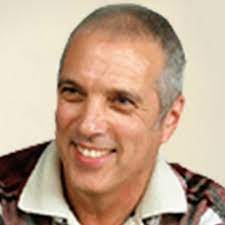Dudu Barak is a writer of
His studies in a school in the Rehavia neighborhood of Jerusalem left their mark on Barak, and one can find common sayings and expressions of this period in his songs. The expression 'Yeled Tov Yerushalayim' appears in his songs, 'Kotel Beyerushalayim' and 'Eretz Yisrael Yafa.' This expression originates from the morning formations at Barak's school, Arlozorov. In the formation next to Barak stood a boy who had this expression written on his Kippa.
Another connection between his school years and his songs is the opening phrase of the song 'Eretz Yisrael Yafa...Ne'ara tovat enayim…' This phrase comes from Levin Kipnis's song 'Eliezer and Rivka,' which Barak learned in his second grade. Kipnis's song begins with the words: 'Ne'ara tovat enayim, hati kadech hashkini mayim…' Additional idiomatic phrases such as 'Mi pilel vemi Milel' and 'Kol hatan and kol kala appear as well in Baraks' song.'
Barak's school was not part of the Rehavia neighborhood. He was sent to this school because of his mother, who wanted him to get to know the people and the ethnic groups outside Rehavia. The influence of this encounter may be seen in Barak's use of 'Mediterranean' melodies.
Some of his songs became idiomatic phrases. Two examples are the songs 'Hofshi Vemeushar' and 'Kotel Hamizrah.' Barak tells about these songs: 'I didn't mean to create idiomatic phrases when I wrote the songs. But when I saw a soldier in the street asking his friend, 'Ma Shlumcha?' (How are you doing?), and his friend replying, 'Hofshi Vemeushar' (Free and happy), I understood it was an idiomatic phrase. When they adopted the name 'Kotel Hamizrach' in Kol Yisrael, I understood it was an idiomatic phrase. The idiomatic phrase 'Eretz Yisrael Yafa' existed before I wrote the song. But the song brought it into common language.'
Dudu Barak is both a poet and a Pizmonai, (lyricist). When asked what he thinks is more important, poetry or Pizmonaut (writing lyrics for songs), he answered: 'The Pizmon (lyrics) is art combined with craft. It's craftsmanship with a soul, with inspiration. Without its artistic value, the Pizmon is not a Pizmon. I wrote nine poetry books, three children books, and one book of Pizmonim (the last is the one with most of my known songs). These deal with every aspect of life, from love and hate to the holocaust.'




